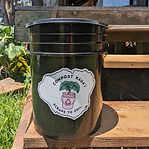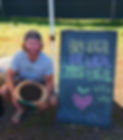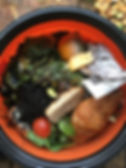bUY LOCALLY MADE COMPOST
become a member
Services for Kaua'i residents and visitors!
When you become a member of Compost Kauaʻi, you’re not just signing up for curbside or drop-off compost collection—you’re joining a growing movement to turn local food scraps into rich, living soil.
We are an organized community dedicated to preserving our island.
Members receive weekly collection services, access to our members-only portal, and a seasonal share of finished compost for their own gardens. Your membership directly supports our island’s shift toward sustainability by reducing landfill waste, cutting emissions, and nourishing Kauaʻi’s ʻāina.
It’s an easy, impactful way to give back to the land while keeping your food waste out of the trash.

curbside services
Find out if you're in our service area for our all inclusive pick-up service.

Drop off services
& Kaua'i Visitors
Drop off your food scraps at your convenience.
We are community composters
and we believe in a decentralized system...
We should be keeping our scraps in our ahupua'a.
Why truck our food waste to Kekaha when we can handle it right in our own backyard?
We don’t need massive facilities -- just community.
Here’s the truth: real change starts in our own backyards & neighborhoods.
That’s why we’re creating a network where:
-
Neighbors transform their scraps into black gold – keeping organic waste and nutrients where they belong
-
Farmers get richer soil – no imports, no waste, just island grown resources
-
Everyone shares the load – because community solutions make more sense than a singular centralized systems
The payoff?
-
Fewer trucks hauling rubbish across the island
-
More dollars circulating in our communities
-
Healthier soil from mauka to makai
This isn't just composting—it's taking responsibility for our piece of paradise.



We shop local and eat local
What about recycling local?
On an island where every resource counts, composting isn't just beneficial—it's essential.
This simple act completes the cycle:
• Keeping waste out of our overburdened landfill
• Transforming scraps into nourishment for our soils
• Rebuilding the connection between what we grow and what we eat
From your kitchen to the 'āina, composting is how we:
✓ Take responsibility for our waste
✓ Strengthen local food systems
✓ Honor the Hawaiian principle of ahupua'a, taking responsibilities for our resources where we live
This is sustainable living —and it starts with your food scraps.
How we make composting simple
1. Become a Member --> Sign up
Fill out our quick form to get started: Become a Member
Which Service is in Your Area?
-
Curbside (Eastside): We pick up your food scraps and refresh your bucket each week.
-
Drop-Off (Central & North Shore): Bring your scraps to our Kilauea or Lihue sites.
2. Fill Your Bucket --> We'll do the dirty work
We’ll give you a bucket -- you just fill it with approved food scraps (no trash, please!). We come pick up your scraps each week.
3. Watch the Magic --> Grow more than food
Your food scraps become nutrient rich compost for local farms and gardens (including yours!).
No mess, no stress — we take care of the dirty work.
Jus’ lidat!

can &
no can
can - Put In your bucket
no can - reuse, recycle or trash it
Cooked and raw foods
Fruits and vegetable scraps
Meat, bones, fish, crustaceans*
Coffee grounds and filters
Rice, bread, oatmeal, grains
Dairy products including cheese*
Herbs, spices, dried fruit
Household plants including soil
Tortillas, potato chips, popcorn
Sauces and syrup*
Stale crackers, bread, cereal, pretzels, pasta
Nuts and shells
Tofu and tempeh
Hair (pet or human)
Chopsticks
Paper plates, bags, & to-go boxes (no plastic)
Newspaper (remove plastic/shiny inserts)
*Keep under 5% of total.
Glass
Liquids
PLASTIC
Rubber bands
Aluminum cans or foil
Latex or rubber gloves
Produce stickers/labels
Paper plates or coffee cups with wax coating
Fats, grease, oil, candy
Items labeled "biodegradable" (different than "compostable")
Items labeled BPI Certified Compostable (these are for industrial facilities only)
Items labeled ASTM D6400 or D6868
Styrofoam
Baby wipes, cloth, and clothing
Pet food
Cigarette butts
Dead animals
Dryer lint
When in doubt, leave it out!
Contaminated compost is our greatest challenge for healthy soils.








